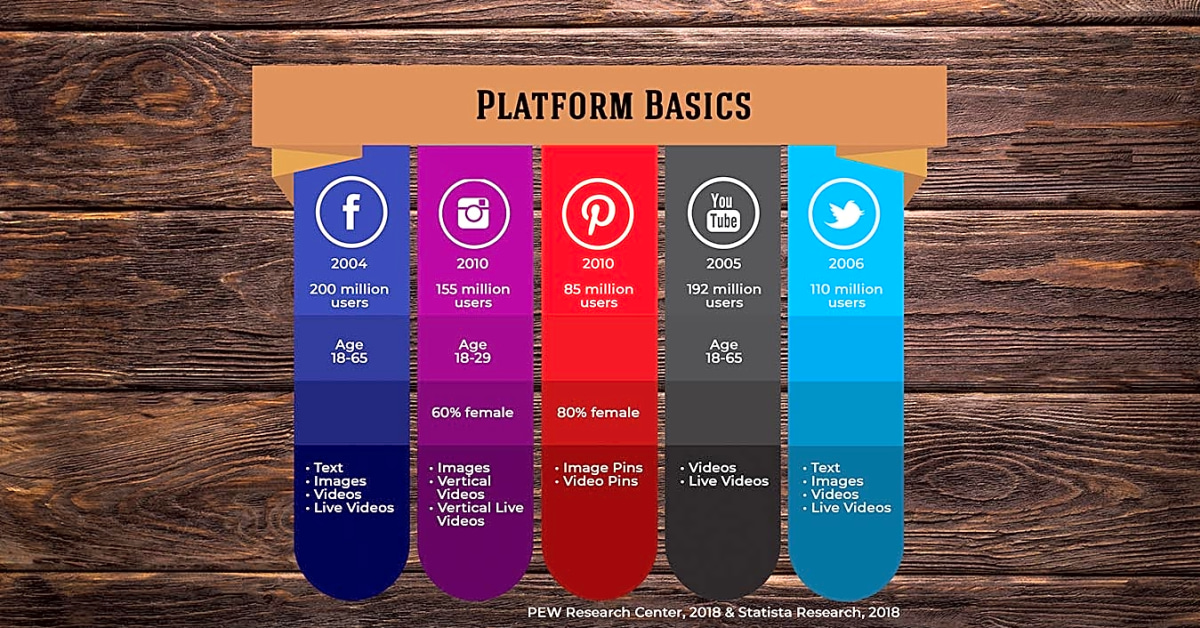In today’s digital world, social media has become an essential tool for businesses to connect with their target audience, build brand awareness, and drive sales. With so many different social media platforms available, it can be overwhelming to determine which ones are the best fit for your brand. However, choosing the right social media platforms is crucial for a successful content marketing and social media marketing strategy. In this article, we will discuss the key factors to consider when selecting social media platforms for your brand, and provide valuable insights on how to make the right decision. So, whether you’re just starting out or looking to revamp your social media presence, keep reading to learn how to choose the right social media platforms for your brand.
In today’s digital age, having a strong social media presence is crucial for any brand looking to thrive and succeed. With the vast number of social media platforms available, it can be overwhelming to determine which ones are the right fit for your brand. This is where understanding your target audience becomes essential.
By knowing who your audience is and their preferred social media platforms, you can narrow down your options and focus on platforms that will reach and engage your desired audience. For example, if your brand targets a younger demographic, platforms like Instagram and TikTok may be more suitable, while LinkedIn may be better for a business-to-business (B2B) audience.
To gather insights on where your audience spends their time online, you can also conduct market research or surveys. This will help you understand which platforms are most popular among your target audience and where you should focus your efforts.
When choosing the right social media platforms for your brand, it’s also important to consider your goals and objectives. Different platforms offer different features and cater to different types of content, so it’s crucial to align your goals with the platform that best suits them.
For instance, if your goal is to increase brand awareness and reach a larger audience, platforms like Facebook and Twitter may be more suitable due to their large user base and ability to share content quickly. On the other hand, if you want to showcase visual content and engage with younger audiences, platforms like Instagram and TikTok may be the better choice.
Another factor to consider is the type of content your brand produces. For example, if you primarily create long-form written content, LinkedIn may be the best platform to share it on. If you create videos, YouTube or TikTok may be more suitable. Understanding which platforms cater to the type of content you produce can help you reach your target audience more effectively.
It’s also important to consider your budget and resources when selecting social media platforms. Some platforms offer paid advertising options, while others are more focused on organic reach. It’s important to evaluate your budget and determine which platforms will give you the most bang for your buck. Additionally, consider the time and resources you have available to manage each platform effectively. It’s better to have a strong presence on a few platforms than a weak presence on many.
In conclusion, choosing the right social media platforms for your brand requires a thorough understanding of your target audience, goals, and type of content. By conducting market research, aligning your goals with the platform’s features, and considering your budget and resources, you can make informed decisions that will contribute to effective social media management and overall organizational efficiency and performance.
Consistency is Key
When selecting social media platforms, it’s crucial to maintain consistency across all your channels. This includes branding, tone, and messaging. This will help build a cohesive and recognizable brand image, making it easier for your audience to connect with and remember your brand.
Track Your Progress
As you begin using different social media platforms, be sure to track your progress and analyze your results. This will help you determine which platforms are bringing the most success and where you can make improvements. Use analytics tools provided by each platform or invest in social media management tools to gather data on your performance and make informed decisions for future strategies.
Identifying Your Brand’s Goals
Your goals as a brand should also guide your social media platform selection. Are you looking to increase brand awareness? Drive website traffic? Generate leads? Different platforms have different strengths and can help you achieve various objectives. For example, if you want to showcase your products or services visually, platforms like Pinterest or YouTube may be ideal. If your goal is to build a community and engage with your audience, Facebook or Twitter may be more suitable.
Understanding Platform Features
use HTML structure with features and capabilities of each social media platform. Some platforms offer more visual-based content, while others are more text-based. Some have live streaming capabilities, while others have options for paid advertising. Consider what type of content you want to share and which features will be most beneficial for your brand’s goals.
Identifying Your Brand’s Goals
When it comes to choosing the right social media platforms for your brand, it’s important to have a clear understanding of your goals. Each platform offers different strengths and can help you achieve various objectives.
If your main goal is to increase brand awareness, platforms like Facebook and Instagram may be your best bet. These platforms have a large user base and offer various advertising options to help you reach a wider audience.
On the other hand, if you want to drive website traffic, platforms like Twitter and LinkedIn may be more effective. With their focus on quick updates and professional networking, these platforms can help attract potential customers to your website.
If generating leads is your top priority, then platforms like LinkedIn and YouTube may be worth considering. LinkedIn is known for its B2B networking opportunities, while YouTube allows you to showcase your products or services through video content.
Lastly, if community building and audience engagement are important to your brand, platforms like Instagram and Twitter may be the way to go. With their emphasis on visual content and real-time interactions, these platforms can help you foster a strong and engaged community around your brand.
Identifying Your Brand’s Goals
Your goals as a brand should also guide your social media platform selection. Are you looking to increase brand awareness? Drive website traffic? Generate leads? Different platforms have different strengths and can help you achieve various objectives.
For example, if you want to showcase your products or services visually, platforms like Pinterest or YouTube may be ideal. If your goal is to build a community and engage with your audience, Facebook or Twitter may be more suitable.
In conclusion, selecting the right social media platforms for your brand is a crucial step in achieving efficient operational leadership. By understanding your target audience, setting goals, familiarizing yourself with platform features, maintaining consistency, and tracking your progress, you can determine the best platforms for your brand and effectively reach and engage your audience.







